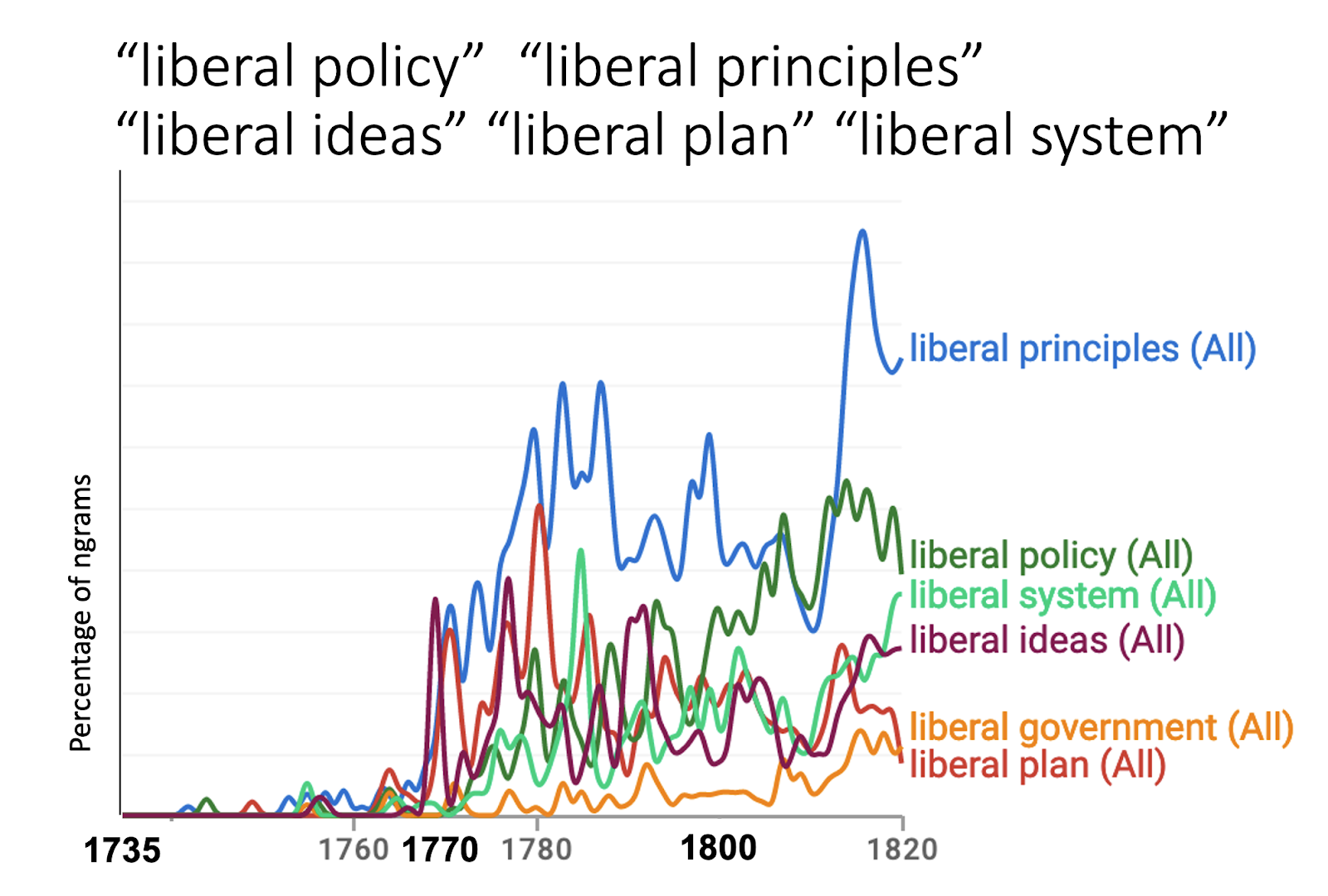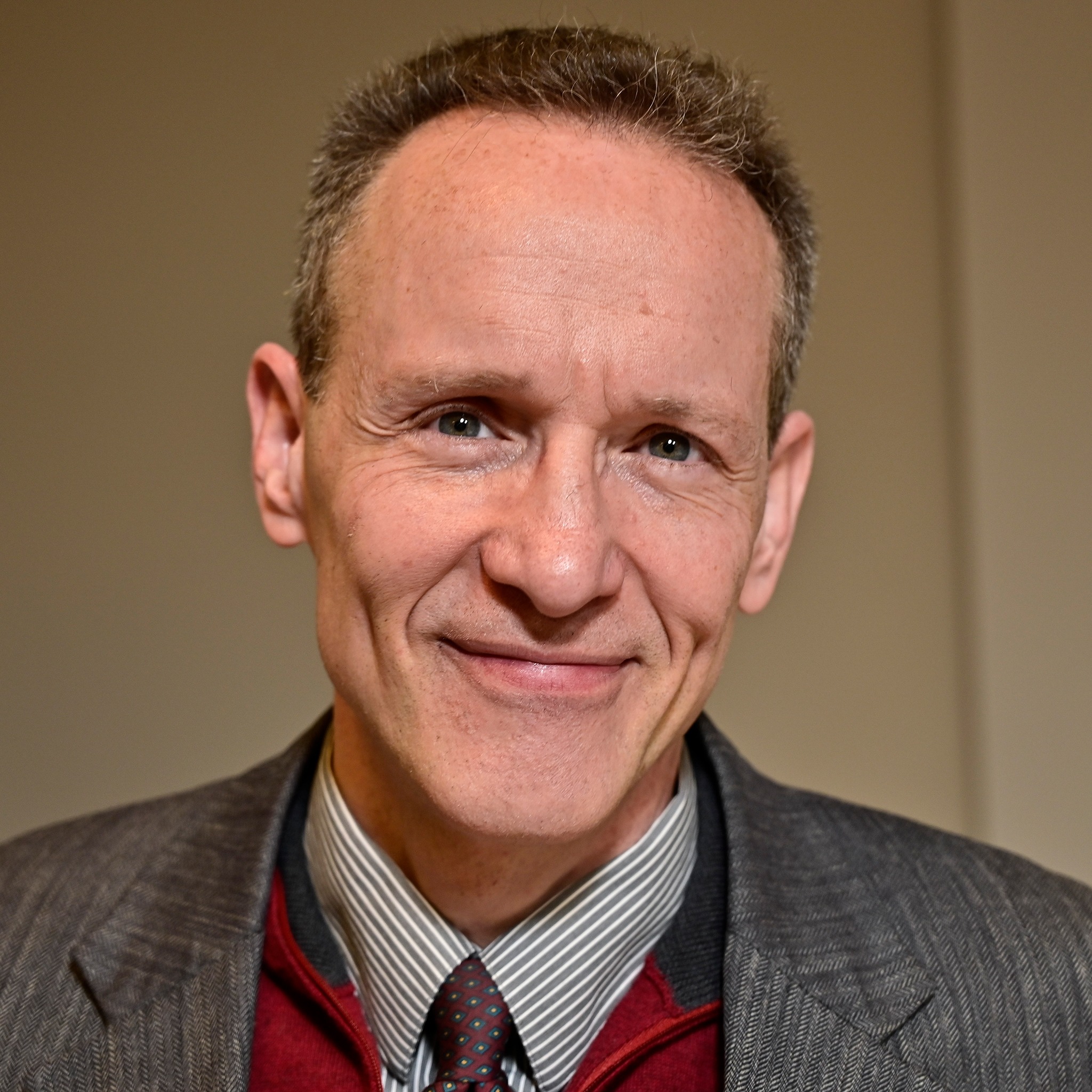The digitization of text has enabled us to prove that liberalism started with Adam Smith and friends. Liberalism 1.0 was Smithian liberalism.

I show the origins, nature, and character of liberalism 1.0 in a new study, “‘Liberal’ as a Political Adjective (in English), 1769–1824,” embedded below.
The paper discusses the stepping from non-political meanings of the adjective liberal to the first political meaning. Smith and his friends christened their political outlook “liberal.” The data show that ‘liberal’ acquired a sustained political signification for the first time around 1769: the liberal policy principles of Adam Smith and his associates.
The study will appear in Journal of Contextual Economics – Schmollers Jahrbuch, in an issue containing proceedings of the Adam Smith 300 conference in Edinburgh in 2023, organized by the NOUS Network. The posting is done with permission of the editors of the special issue.
The bodies of evidence include: (1) the non-occurrence in English prior to 1769 (with a few exceptions); (2) the blossoming from 1769 of ‘liberal plan,’ ‘liberal system,’ ‘liberal principles,’ ‘liberal policy,’ etc.; (3) the occurrence beginning in the 1770s of political uses of ‘liberal’ in Parliament; (4) the occurrence of the same in the Edinburgh Review, 1802–1824.
The political adjective liberal came alive around 1769 and was sustained straight up to when the political nouns liberalism and liberal start up in the 1820s.
The data from French, German, Italian, and Spanish confirm that Britain was the first to get to a political sense of “liberal.”
I look at text of David Hume and Adam Ferguson, and then the liberal christeners William Robertson and, most importantly, Adam Smith.
I briefly treat figures in the sustainment of the christening, Edmund Burke, Dugald Stewart, and John Ramsay McCulloch.
I also discuss “liberal” in early American political discourse. I theorize on why “liberal” was never much used in America, until the twentieth century, when “liberal” acquired a new meaning contrary to the Smithian meaning.
Those who favor reform that reduces the governmentalization of social affairs need a name for that Smithian outlook. Whatever name we adopt, it will be abused or stolen by those whose characters and deeds spell the governmentalization of social affairs. We should remember who we are. We should return to the great liberal arc of the last 500 years, rising out of Christendom. There is only one liberalism 1.0. Let’s recover it and stick with it.
Join the conversation:

Published under a Creative Commons Attribution 4.0 International License
For reprints, please set the canonical link back to the original Brownstone Institute Article and Author.









